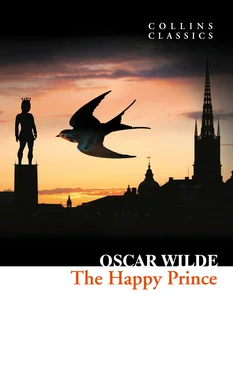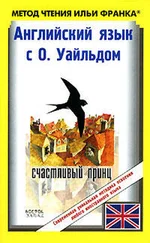Despite Wilde’s sexual orientation he did his best to conceal it for fear of prosecution. This included his becoming betrothed and producing two sons. One of his sons sadly perished in World War I. The other became an author himself, but he concealed his identity for many years due to his father’s reputation and following his disgrace and downfall.
Wilde finally capitulated to his homosexual desires when he met a boy named Robert Ross and fell in love. He had undoubtedly known about his leanings but managed to constrain himself until Ross appeared. Wilde is known to have relished the excitement that came from the danger of his situation. He had a number of further homoerotic encounters and became involved with a group of homosexual men who were secretly campaigning for reforms in the law to decriminalize their behaviour.
Unfortunately for Wilde he had begun an affair with the son of the Marquess of Queensbury and this proved his undoing. The Marquess blamed Wilde for perverting his son’s sexuality and was determined to see Wilde prosecuted for his crimes. Ironically it was Wilde who took the Marquess to court for criminal libel, such was Wilde’s overconfidence. Things backfired though, and Wilde found himself in the dock for ‘gross indecency’. He was sentenced to two years hard labour, which he served at Pentonville, Wandsworth and Reading prisons.
After completing his sentence Wilde took a new name and fled to Europe as Sebastian Melmoth. His experience as a convict had affected his health badly and he survived for only three more years, dying at the age of 46 in Paris. Had his health been more vigorous, Wilde may well have seen a time when society forgave him for his indiscretions, for his talent as a writer was undisputed. As it was, he passed away before the dust had settled and a long time before homosexuality became decriminalized.
The Happy Prince and Other Stories
Wilde’s collection of short stories for children, The Happy Prince and Other Stories , is imbued with a timeless quality, as if derived from the collective folklore of a nation. The tales possess such romantic charm and moral charge that they read like traditional fables crafted and refined by generations of storytellers over hundreds of years.
Superficially these stories are written for children, but they sparkle with wisdom and allegory that is immensely appealing to adults too. The collection is best known for its title story, ‘The Happy Prince’, which tells a tale of kindness, self-sacrifice and ultimate reward. An idealistic tale, Wilde anthropomorphizes a swallow and breathes life into a stone statue to act the parts of his central characters. Each story both captures the reader’s imagination and inspires reflection on the moral at its heart.
Walter Crane, a highly influential commercial artist with a distinctive style, illustrated the first edition of the book, along with Jacob Hood. He successfully encapsulated the spirit of children’s stories in his drawings and paintings, bringing further vitality to Oscar Wilde’s words.
The Happy Prince and Other Stories was part of Wilde’s experimentation period as a writer during the 1880s, when he regularly contributed fairy tales to magazines. Despite his evident talent for the genre, he found greater success as a playwright and novelist over the following ten years, before his early death at the age of 46.
Between 1879 and 1894 Oscar Wilde wrote nine plays in total. Lady Windermere’s Fan , A Woman of no Importance , An Ideal Husband and The Importance of Being Earnest were his most well-loved and popular, the latter being regarded as his masterpiece. Victorian melodrama was Wilde’s favoured genre, however he introduced the ‘dandy’ character to his plays, always a man obsessed with his own appearance who speaks in paradoxes and is self-mocking, whilst at the same time casting criticisms and witty, insightful asides on the dubious morals of those around him. The ‘dandy’ was almost entirely autobiographical and frequently used in Wilde’s plays as a stand-in for himself.
In 1895 An Ideal Husband published at a time of Imperial expansion where the Victorian public were expected to adhere to the strict social mores of the time both publicly and privately. Wilde’s play pits traditional Victorian moral sensibilities against his own love for aesthetic affectations, where freedom, beauty and pleasures were revered. The ‘dandy’ appears in An Ideal Husband , largely there to represent Wilde and his own feelings on the matter in stark contrast to the rigid mindset of the other ‘ideal’ characters in the play.
The Importance of Being Earnest was experimental in its nature, satirising the artifice of Victorian society and stabbing fun at the hypocrisy and self-righteousness of society while presenting itself on the surface as an intelligent, yet farcical comedy of manners. After Wilde’s death in 1900, the play continued to be regarded as a light, breezy and frivolous comedy, reflective of the mindset of the era where homosexuality was considered a taboo topic. It was not until the 1960s when homosexuality was decriminalised in England and an interest in gay culture was beginning to spread that the play began to be dissected by readers, who began to see a subtext emerge where the hypocrisy of the Victorians and their guarded references to homosexuality became more apparent.
THE HAPPY PRINCE AND OTHER STORIES CONTENTS Cover Title Page THE HAPPY PRINCE AND OTHER STORIES Oscar Wilde Copyright History of Collins Life & Times The Happy Prince and Other Stories The Happy Prince The Nightingale and The Rose The Selfish Giant The Devoted Friend The Remarkable Rocket A House of Pomegranates The Young King The Birthday of the Infanta The Fisherman and His Soul The Star-Child Classic Literature: Words and Phrases adapted from the Collins English Dictionary About the Publisher
THE HAPPY PRINCE CONTENTS Cover Title Page THE HAPPY PRINCE AND OTHER STORIES Oscar Wilde Copyright History of Collins Life & Times The Happy Prince and Other Stories The Happy Prince The Nightingale and The Rose The Selfish Giant The Devoted Friend The Remarkable Rocket A House of Pomegranates The Young King The Birthday of the Infanta The Fisherman and His Soul The Star-Child Classic Literature: Words and Phrases adapted from the Collins English Dictionary About the Publisher
High above the city, on a tall column, stood the statue of the Happy Prince. He was gilded all over with thin leaves of fine gold, for eyes he had two bright sapphires, and a large red ruby glowed on his sword-hilt.
He was very much admired indeed. “He is as beautiful as a weathercock,” remarked one of the Town Councillors who wished to gain a reputation for having artistic tastes; “only not quite so useful,” he added, fearing lest people should think him unpractical, which he really was not.
“Why can’t you be like the Happy Prince?” asked a sensible mother of her little boy who was crying for the moon. “The Happy Prince never dreams of crying for anything.”
“I am glad there is some one in the world who is quite happy,” muttered a disappointed man as he gazed at the wonderful statue.
“He looks just like an angel,” said the Charity Children as they came out of the cathedral in their bright scarlet cloaks and their clean white pinafores.
“How do you know?” said the Mathematical Master, “you have never seen one.”
“Ah! but we have, in our dreams,” answered the children; and the Mathematical Master frowned and looked very severe, for he did not approve of children dreaming.
One night there flew over the city a little Swallow. His friends had gone away to Egypt six weeks before, but he had stayed behind, for he was in love with the most beautiful Reed. He had met her early in the spring as he was flying down the river after a big yellow moth, and had been so attracted by her slender waist that he had stopped to talk to her.
Читать дальше












